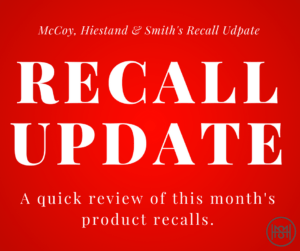By: Chad McCoy
Like many of you, I am bombarded nightly with commercials from the big pharmaceutical companies imploring me to “talk to my doctor” about their latest and greatest drug. Unlike most of you though, I live with my doctor: my wife. So every time one of those commercials comes on, I turn to her and say, “Ok Doc, do I need to be on _____ drug?” Here is the frustrating thing – most of the time, she does not even know what the drug is yet.
In the medical world, the pharmaceutical companies have an army of sales reps that make their rounds to all the local doctors trying to educate them on the new drugs, the old drugs, the side effects, etc. Like lobbyist to politicians, these folks play an important, though biased, role in educating our medical providers on current drugs.
What I have learned from my doctor is that there are at least three problems with these commercials.
First, most of the time the reps have not learned about the new drug themselves and thus have not and cannot educate your local doctor about the drug.
Work With Chad and Sheila Today
Second, a lot of the time the “new” drug is not a new drug at all. As drugs come off patent and are subject to competition from generic manufacturers, the original company looks for new ways to “repackage” the old drug into something new – maybe combine it with another related drug or add a little extra side benefit. This allows them to get patent protection on the “new” product and continue with higher profitability.
Third, and perhaps most important, the new drugs are often of questionable efficacy. This is where marketing and statistics collide and can seriously mislead an unwary consumer or provider. Take for example a drug that is subjected to a random double-blind study where the results show that out of 1,000 sick people, 30 taking the placebo got better but 60 taking the new drug got better. Statistically, the new drug works great – double the placebo. But the bigger question should be “Is 60 out of 1,000 really worth the new drug?”
In the United States, we live by the caveat emptor principle, “Buyer Beware.” Mind you, there is nothing wrong with making a profit. I completely understand the research and development costs and risks associated with producing new medicines and have no problem with this behavior. However, as consumers, we need to be educated and ask the right questions of our docs. Just because a new drug has been released does not mean that it is worth the potential side effects and certainly does not make it worth the price tag. Before you ask your doctor to prescribe the newest and shiniest medicines on the market, make sure you have done your homework, and so has your doctor.
Let Us Put Our 58 Years Of Trial Experience Towards Your Case.




